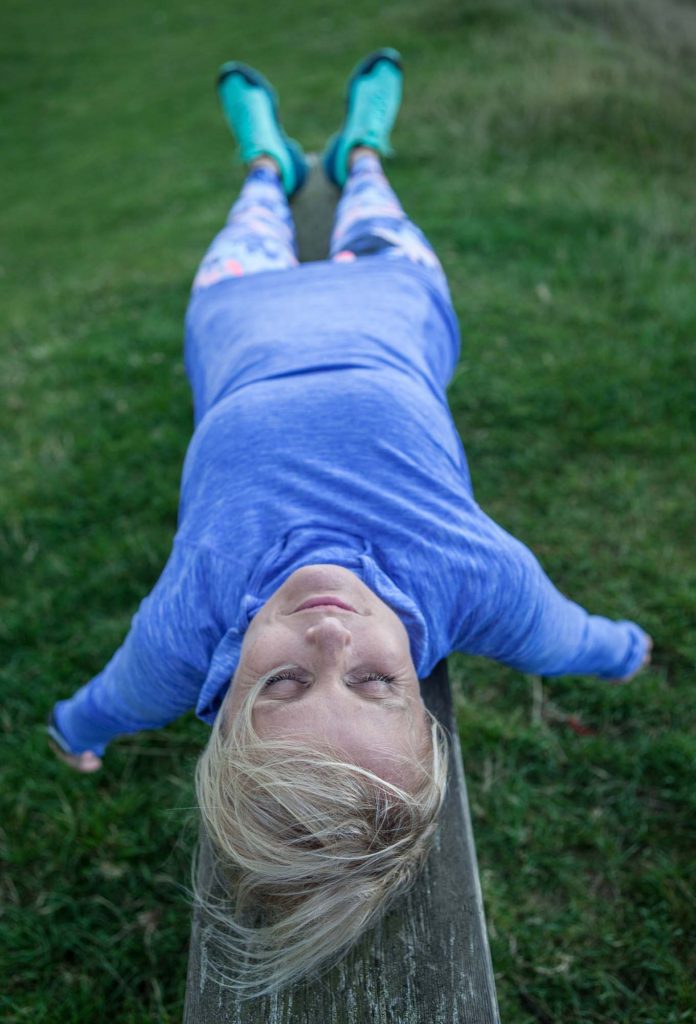It happens to all of us at some point – the light switches off, but you don’t. The impact of just a few night’s missed sleep can be dramatic. One Harvard study demonstrated a clear correlation between drowsy drivers and increased accident rates. There’s also lots of evidence now that long-term lack of sleep is linked to a range of diseases from diabetes, heart disease to mood disorders. But knowing all of that doesn’t necessarily help, does it? We’ve been gathering some top tips on how to fall asleep naturally, giving your body a fighting chance to rest well and let good sleep keep you fighting fit.

Image: Simon K Allen Photography
Ditch the caffeine REALLY early
There was a spell when I was living with my boyfriend and his parents, and we had a cup of tea after work each evening. It also coincided with the worst insomnia I’ve ever had – lying looking at the ceiling for hours on end, feeling like I was slowly losing my marbles… Just from a cup of tea at 5:30 each day! Now, after years of trial, I’ve realised that I need to switch to decaf tea at about 1pm if I’m supposed to ever get to sleep.
The rate at which people metabolise caffeine can vary hugely, from a couple of hours to up to ten. Which is why some hardy souls can have an espresso after dinner and nod off with no problem, and I start thinking tea is the devil after lunchtime. Caffeine tolerance is genetically related, which may explain why both mum and I act like vampires being offered garlic if anyone tries to give us coffee in the afternoon.
Meditate, but not just at bedtime
The biggest thing I do for improving my sleep actually happens at 6:30am when my alarm goes off. I drag myself into the spare room, light a candle and pop on the Headspace mediation app to meditate for 20 minutes. I focus on my breath, feel the temperature of the room and the weight of my body in my chair. I let thoughts pass through my mind like clouds in the sky, while trying (and often failing) to keep my focus on the here-and-now.
How, exactly, does this impact my sleep later in the day? It means I have much more control over my thoughts throughout the day, but especially at bedtime. By spending the time on a morning observing my thoughts and practicing strengthening my ‘focus muscle’, I am much more able at bedtime to pull my focus away from the ‘rabbit holes’ of thought that can consume at bedtime.
Practice good sleep hygiene
As mum said in her How To Sleep Well post, sleep hygiene factors are incredibly important. For me, this means sleeping in a room as cold as my bedmate allows (think: mortuary-level-cold), with a good duvet and a heavy blanket on top. We’ve been trying the new Snuggledown Rest and Rejuvenate bedding, which we’ve found does the trick for keeping your temperature just right all night long. I wear an eye mask EVERY night, no matter if the room is already what most people would consider ‘pitch black’, as there is no such thing in my mind.
Sleep hygiene sounds a bit technical but it really encompasses all of the little tiny factors that may stop you falling asleep as effectively as you might – for example, having cold feet, being dehydrated, or having the wrong sized pillow. Try some experiments, thinking about times when you slept really well (not times that you were drunk, please!) and what might have been different then.
Don’t get too stressed if sleep isn’t great
All of this post makes it sound like I am falling asleep on a cloud of cotton wool each night – this isn’t necessarily the case. While I do fall asleep much better nowadays, my current nemesis is waking up with jolting pangs of anxiety in the small hours of the morning. Sometimes, I can use my breathing techniques and meditate myself away from the feeling, but sometimes I just realise that removing myself from the situation is actually more positive.
I pad downstairs, taking my book from the bedside table and make myself some warm almond milk. I sit on the sofa while our cats, who are normally in the back rooms at night, look at me nonplussed. After twenty minutes or so, I’ve chilled out and can happily go back to bed for a few hours of restful sleep. There is actually a lot of evidence that before the industrial revolution, most people slept generally in two phases in the night, and that a wakeful period is natural. A good thing to think about when you’re staring at the ceiling at 2am…
Disclaimer: Snuggledown provided us with Rest and Rejuvenate bedding but opinions on the product are our own.
Excellent advice. Sleep is so hard to come by and there are a million ways to fall asleep unnaturally. It is nice to see some healthy alternatives. Thanks for sharing!
Some great advice in there! Since having a baby sleep is in great demand and being able to get back o asleep quickly becomes a real plus. Most books about sleep and parenthood mention that humans used to have a ‘1st sleep’, wake for an hour or two then ‘2nd sleep’ which makes me feel much better when awake at 3am feeding my little boy! You haven’t mentioned turning off electronic devices above which I also find really helps no Facebook distractions until the morning! Thanks for the advice